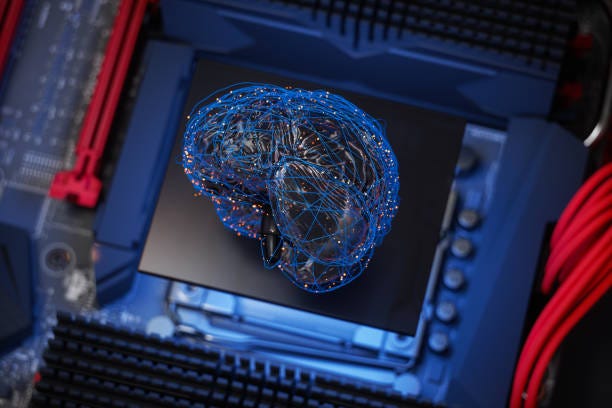Feature Friday: Neural Nexus
Amid the boom of technological marvels, a new movement whispers through the halls of innovation — Brain-Computer Interfaces (BCIs). This budding technology, poised at the cusp of cognition and computation, heralds a new realm of possibilities. Yet, as the symphony of thoughts melds with the digital realm, a crescendo of ethical, social, and philosophical dilemmas emerges, beckoning a profound exploration into the heart of human identity and autonomy.
At the core of BCIs lies the promise of a harmonious fusion between the human mind and machines. The allure of communicating with computers using thought alone, of augmenting human capabilities, and of transcending the biological confines of the brain, is tantalizing. Yet, as the boundary between mind and machine blurs, the essence of human autonomy and identity comes into question.
Central to the discourse is the sanctity of mental privacy. As BCIs gain access to the inner sanctum of personal thoughts and memories, the potential for cognitive surveillance sends a shiver down the spine of the collective consciousness. As BCIs pry into the vault of our minds, we might just find ourselves reminiscing about the good old days when a “cookie” was just a sweet treat, and not a trail of our digital thoughts. In a realm where thoughts are no longer private, the fabric of personal identity and autonomy trembles.
With the emergence of BCIs unveils a profound philosophical discourse on the essence of human identity. As minds meld with machines, the narrative of what it means to be human evolves. The interplay between human cognition and artificial intelligence invites a reflection on the core values and ethics that guide the voyage into the cognitive frontier.
The socio-economic implications of BCIs are profound. The potential to augment cognitive capabilities beckons a future where socio-economic divides could morph into cognitive divides. The gulf between the cognitively augmented and the unaugmented could redefine social hierarchies in a manner hitherto unimaginable.
Yet amidst the ethical maelstrom, BCIs extend an olive branch to a myriad of societal challenges. The promise of restoring lost sensory or motor functions, of alleviating the shackles of neurological disorders, and of advancing the human experience is profound.
As society stands on the precipice of the cognitive frontier, the silent symphony of BCIs is both a melody of hope and a harbinger of profound ethical deliberations. The voyage into the heart of BCIs is not merely a technological exploration, but a profound reflection on the ethical, social, and philosophical tapestry that will shape the narrative of human identity in the epoch of cognitive augmentation. As we march towards this era, let’s just hope our brain-computer interfaces won’t have pop-up ads interrupting our deepest thoughts!


